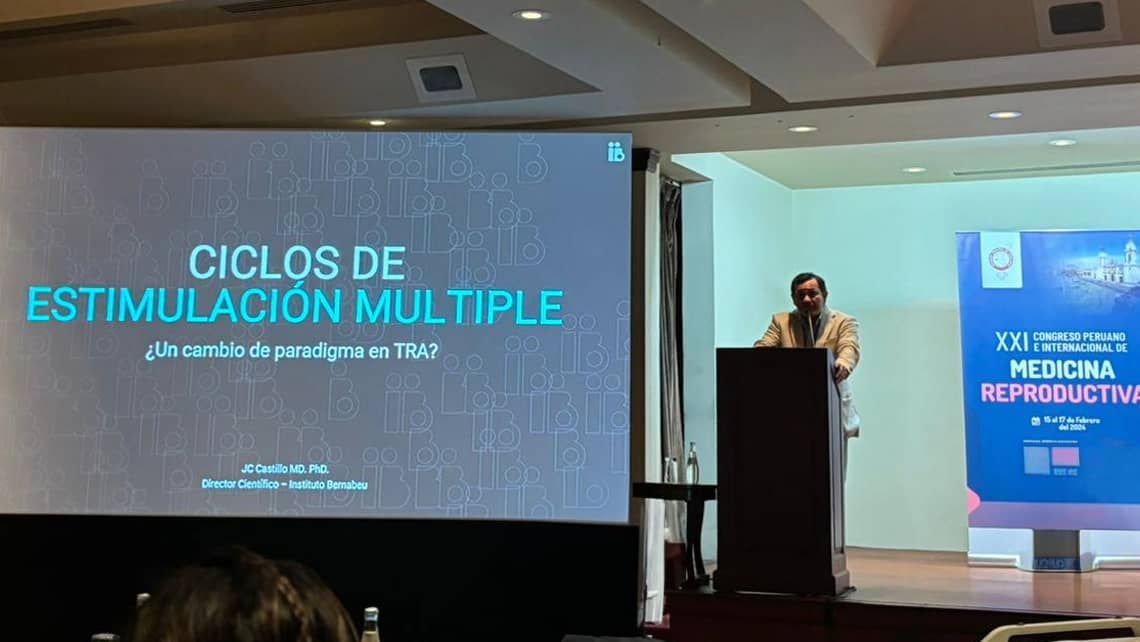Dr Juan Carlos Castillo participates as speaker in the 21st Reproductive Medicine Peruvian and International Congress.
19-02-2024

Within the framework of the 21st Reproductive Medicine Peruvian and International Congress, held from February 15 to 17 on Lima, Dr Juan Carlos Castillo, Instituto Bernabeu scientific director, has given several lectures on different topics related to the latest advances in reproductive medicine.
In the first presentation, he has shared the most effective hormone treatment options to prevent premature Luteinising Hormone (LH) peaks in assisted reproductive techniques. In this context, the use of progesterone has been highlighted as a promising alternative to traditional antagonists. This is due to its advantages, such as efficient cycle control, convenient oral administration and lower drug costs.
On the second one, Instituto Bernabeu’s Scientific Director spoke about in vitro fertilisation (IVF) cycles with double stimulation, known as DuoStim, highlighting the innovative protocol developed by the IB Group. In this approach, long-lasting recombinant follicle stimulating hormone (rFSH) is used sequentially. Dr Castillo explained that this protocol differs from conventional practices by optimising ovarian stimulation in successive cycles, which increases the chances of success in patients requiring multiple IVF attempts. The sequential use of long-acting rFSH provides optimal ovarian response and, at the same time, reduces the number of injectables needed, easing the treatment burden for the patient, especially in long-acting protocols such as this one.
In his third lecture, Dr Castillo explored a hot topic in reproductive medicine, bringing to the table the paradigm shift of the multiple stimulation cycle in assisted reproductive techniques. He highlighted how this approach offers significant benefits for patients by increasing the chances of obtaining several oocytes in a single treatment cycle, which “not only optimises the chances of reproductive success, but also reduces the costs and stress associated with repeated treatments,” he said.
